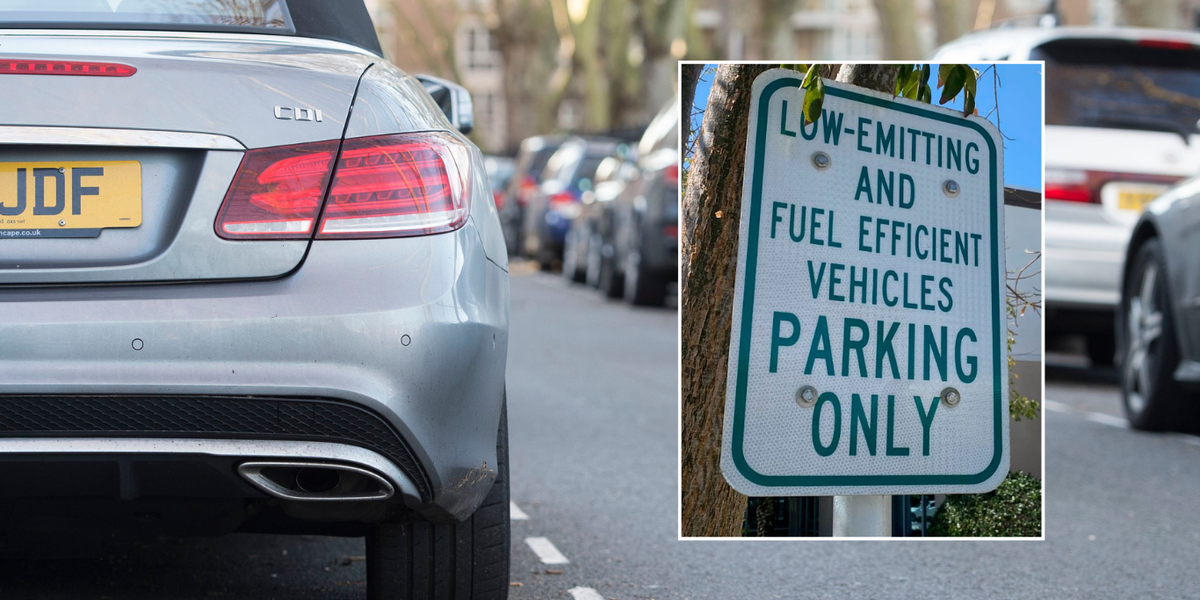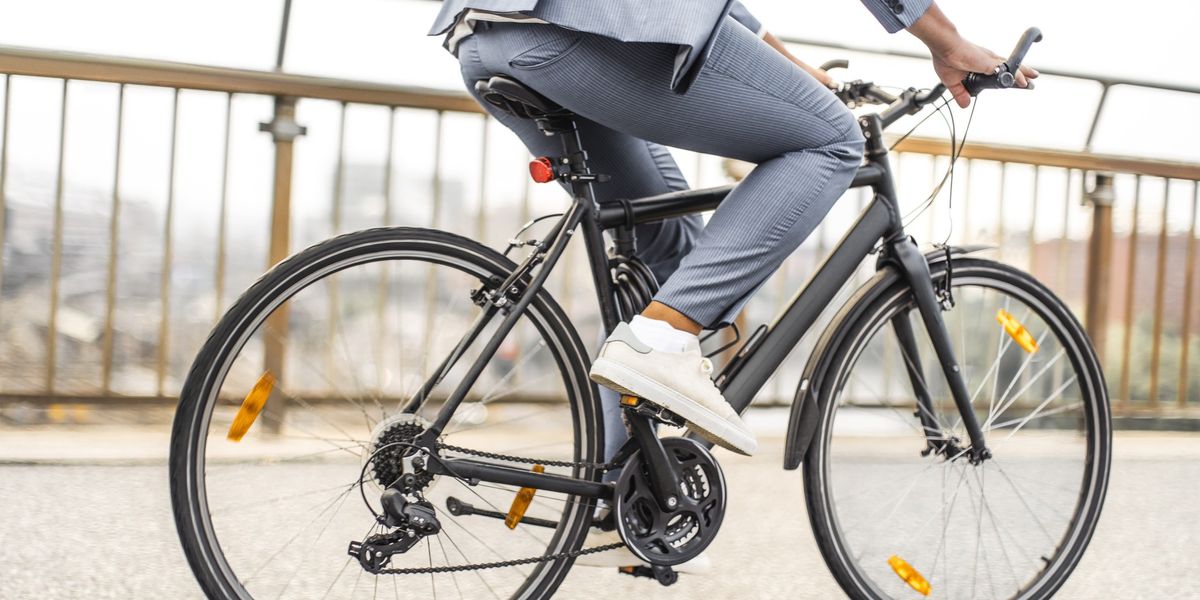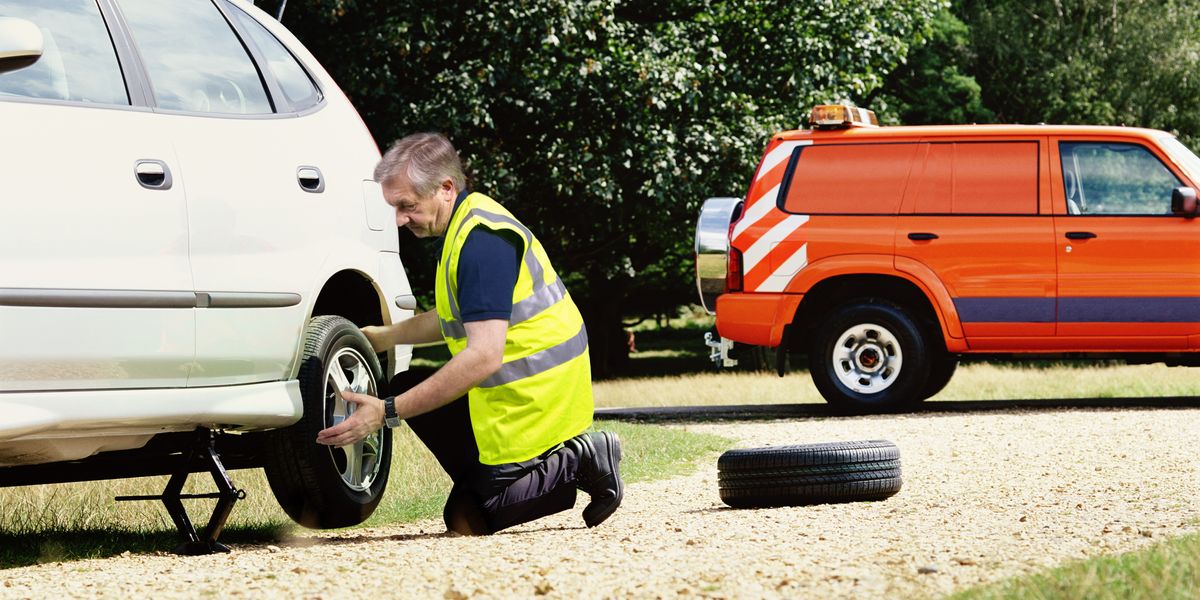Drivers across a major London borough have been warned they face new parking charges based on their vehicle emissions from spring 2025.
The move launched by Newham Council forms part of new measures to improve air pollution in the borough while also deterring more vehicles from clogging up roads.
The council approved the introduction of Clean Air Parking Charges this week, which will include surcharges for diesel vehicles and a restructured emissions-based pricing system.
Under the new scheme, diesel vehicle owners will pay an additional £1 per hour for short-stay parking and annual surcharges of £50 for resident permits.
Do you have a story you’d like to share? Get in touch by emailing[email protected]
Emission-based parking will see diesel vehicles hit with a £100 yearly surcharge
PA/GETTY
However, business and charity permit holders with diesel vehicles will face a £100 yearly surcharge.The measures aim to encourage residents and visitors to switch to cleaner vehicles or alternative transport options.
The new emissions-based pricing system will also see electric vehicle owners paying £2 per hour for short-stay parking, while the highest polluting vehicles will be charged £5.60 per hour.
Over half of all visitor permit users will pay £5.80 for a one-day permit under the revised scheme. The council is also simplifying its visitor permit system by replacing the current six, 12 and 24-hour permits with just two options – a two-hour permit and a one-day permit.
For the two-hour permits, prices will range from £1 for low-emission vehicles to £3 for the most polluting ones. The changes follow analysis showing that Newham’s current price difference between electric and high-polluting vehicles – just 45p per hour – provides insufficient incentive for drivers to choose greener options.
Neighbouring London boroughs typically charge twice as much for high-polluting vehicles compared to low-emission ones, the council highlighted.
The need for emission-based parking follows reports that Newham has some of the poorest air quality levels in London, with residents exposed to particulate matter levels one-third higher than World Health Organisation guidelines.
One in seven residents are exposed to nitrogen dioxide levels above UK health limits, while Public Health England estimates 7.5 per cent of deaths in the borough are partly attributable to air pollution.
Mayor of Newham, Rokhsana Fiaz OBE, said: “Newham faces a critical challenge with some of the poorest air quality in London, and the health of our residents cannot wait. The introduction of Clean Air Parking Charges is a bold and necessary step to tackle this public health crisis head-on.”
The council’s data shows that diesel vehicles are major contributors to local air pollution, producing higher levels of nitrogen dioxide and particulate matter compared to other vehicles.
Transport is now the UK’s largest source of emissions, accounting for 24 per cent of all UK greenhouse gas emissions in 2020.
The council expects these changes to influence driver behaviour, with growth anticipated in sessions bought by lower-emitting vehicles and a reduction in parking by medium to large-emitting vehicles.
Similar schemes in other London boroughs have shown success. Hackney Council reported a 45 per cent reduction in short-stay parking sessions by diesel vehicles after introducing comparable measures.
LATEST DEVELOPMENTS:
The parking charges hope to encourage drivers to switch to electric cars
NEWHAM COUNCIL
The council will also support local businesses by introducing a new “oversized” vehicle category, allowing larger vans up to 7.5 metres long to obtain permits for the first time.
Fiaz added: “By incentivising greener transport choices and discouraging the use of high-polluting diesel vehicles, we are not only improving air quality but also accelerating our journey toward a cleaner, greener borough.
“These changes reflect our unwavering commitment to the health and wellbeing of our residents and to safeguarding our environment for future generations. Together, we can create a Newham where everyone can breathe cleaner air and thrive.”











